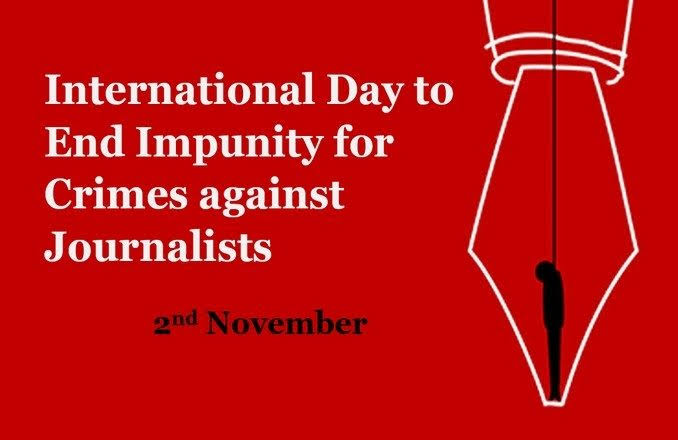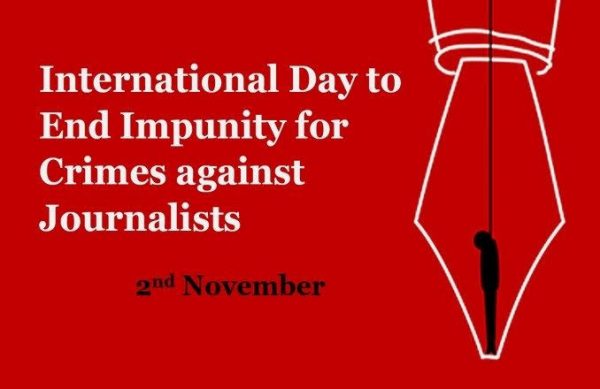The role of journalists in information dissemination globally cannot be over-emphasized. Whether in war-torn countries like Syria, disease-ridden zones or even in diplomatic meetings or international conferences, journalists put in a lot of work into ensuring that we are abreast of happenings in the globe.
At times, they put their lives in great danger to feed the public with information on critical issues. Sadly, more than 1,000 journalists in the past twelve years have been killed in line of duty, and it is more disheartening to note that majority of the offenders are not punished. Out of every ten cases of journalists’ murder, nine of the killers go unpunished. This impunity often leads to more killings, posing a threat to law and judicial systems. In a bid to end the killing of newsmen and women, the United Nations declared November 2, as International Day to End Impunity for Crimes against Journalists.
Read more about other International Days
International Day to End Impunity for Crimes against Journalists
The foundation for a date that would turn out to be popular as International Day to End Impunity for Crimes against Journalists was laid by the International Freedom of Expression Exchange (IFEX), a worldwide network of civil society organizations with the major aim of defending and promoting the right to freedom of expression. In 2011, IFEX declared November 23, as International Day to End Impunity. This date was chosen to remember the 2009 Ampatuan Massacre also known as the Maguindanao Massacre (the single deadliest attack against journalists in contemporary times, with death toll at 57, inclusive of 32 journalists and media personalities).
In the year 2013, the United Nations General Assembly in its 70th plenary meeting, passed resolution 68/163 which officially recognised November 2 as International Day to End Impunity for Crimes against Journalists. November 2, was chosen by the United Nations because it marks the date Ghislaine Duount, and Claude Verlon (two French journalists) were assassinated while reporting in Mali in 2013. The resolution urged Member States of the United Nations to implement measures that will see to the elimination of the culture of impunity globally.
When Journalists are targeted, societies as a whole pay a price. Without the ability to protect journalists, our ability to remain informed and contribute to decision-making is severely hampered. Without journalists able to do their jobs in safety, we face the prospect of a world of confusion and disinformation.
Antonio Guterres (UN Secretary General)
Sign up to the Connect Nigeria daily newsletter
2nd Nov 2019
This year, the United Nations Educational Scientific and Cultural Organization (UNESCO) is greatly concerned about the serious damages caused by impunity to the society in form of covering up the abuse of human rights, corruption, and crime. UNESCO will lead the charge for the observance with the hashtag #KeepTruthAlive to campaign against challenges which hinder journalists from effectively performing their duties.
On 2 November, this year’s International Day to End Impunity for Crimes against Journalists, is focused on local journalists. Through the campaign #KeepTruthAlive, it challenges the perception that murders only happen far from the public eye, primarily targeting foreign war correspondents. It shines the spotlight on local journalists working on corruption and politics in non-conflict situations, who represented 93% of journalist deaths in the past decade.”
Audrey Azoulay, Director-General of UNESCO
Sources:
Un.org
En.wikipedia.org
En.unesco.org
Featured Image Source: euromesco
Did you find this article useful? Contact us: [email protected]


